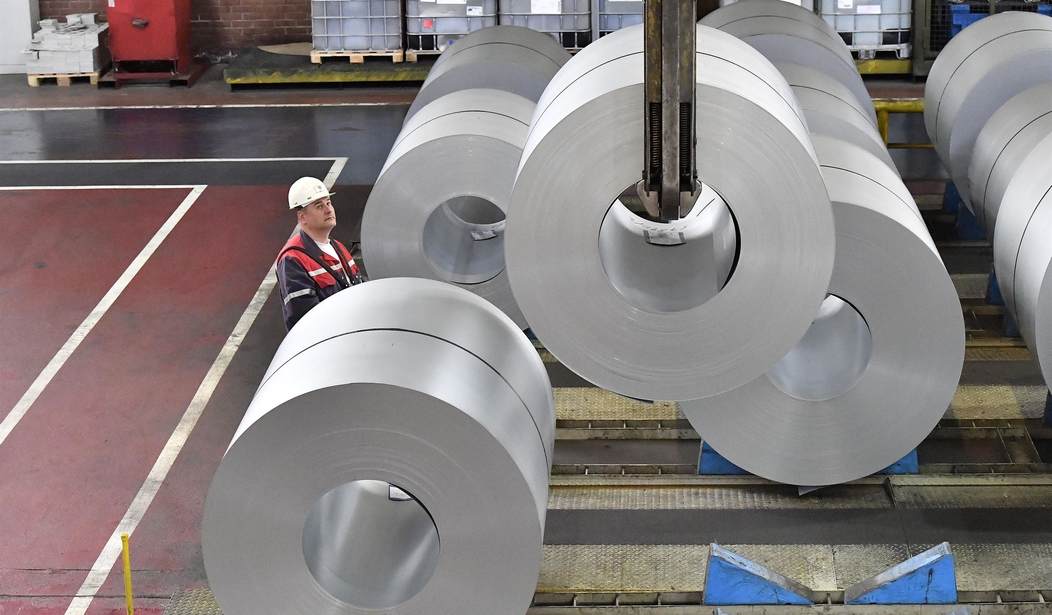As we get closer to election day, candidates continue to rally around slogans like, "America First,” “Buy American,” or “Protect American Jobs,” and while these soundbites may resonate with voters, the politicians spouting them are ignoring the deeper issues at play.
One of the greatest examples of how these slogans (and the grandstanding that surrounds them) fail to protect American interests is the political opposition to Japan-based Nippon Steel’s proposed acquisition of U.S. Steel. While the election year theatrics continue to overshadow what’s really at stake, there will be real-life consequences for thousands of steel workers and their families if the deal falls through.
Most recently, there is reporting that the Biden Administration is preparing to block the deal, claiming national security concerns. This comes as Democratic candidate for President Kamala Harris said that U.S. Steel to remain American-owned and operated. While they claim it is for national security reasons, these statements are having the opposite effect, creating frustration among our Japanese allies, and may have detrimental impacts on other national security initiatives. As one Japan expert at Hudson put it: “What I am hearing from the Japanese side is frustration that while we are working with you on your economic security priorities in semiconductors, we are not getting any reciprocity on our FDI priorities.” A potentially devastating blow as AI technologies continue to grow.
Recommended
This trend is concerning given the fact that Nippon Steel has put their money where their mouth is by recently announced an investment of $1.3 billion into two U.S. Steel plants, Pennsylvania-based Mon Valley Works and Indiana-based Gary Works, further proof of their commitment to a strategic partnership with the United States that will help to revitalize the American steel industry. This move is a testament to the importance of embracing not only investments that align with domestic American economic interests but also investments that strengthen international relationships with our closest global allies.
We can still be an “America First” nation while keeping America from floundering because of good campaign slogans and poor isolationist policies. Every successful business leader knows that the global economy today is interconnected, and partnerships like the one between Nippon Steel and U.S. Steel are crucial to ensuring America’s manufacturing base remains competitive. The steel industry, once a bedrock of the American economy, has faced decades of decline due to lack of investment, outdated technologies, and competition from countries with lower labor costs. While U.S. Steel lacks the financial means to remain competitive in this global market alone, Nippon’s commitment to investing in American steel provides the capital and technology necessary to address these challenges and rebuild the foundation of American manufacturing.
The focus here is not only on modernizing facilities but on safeguarding and creating American jobs. By investing heavily in the modernization of these plants, Nippon Steel is not just pouring money into equipment; it’s investing in the future of American workers. The advanced technologies that allow for cleaner and more efficient steelmaking processes will help to reduce operational costs, lower emissions, and create a more sustainable industry that can compete on a global scale.
This Japanese company’s commitment to invest in Mon Valley Works and Gary Works disproves the false narrative that our nation is forced to choose between American jobs and participating in the international economy. Combining the deep-rooted history of American steelmaking with global innovation is a clear path to success. Turning away partnerships like this puts our domestic manufacturing in jeopardy of obsoletion, ultimately leading to lost jobs, economic instability, and national security risk.
Moreover, Nippon Steel’s investment signals confidence in the U.S. market. When foreign companies are willing to invest significant amounts of capital, it’s a clear indication that they see long-term value in American industries. This investment serves as a counter-narrative to the belief that America’s best days in manufacturing are behind us. Rather than fear the foreign investment of one of our closest allies, we should welcome it as validation of our economic strength and an opportunity to reinvigorate the once-strongest manufacturing sector in the world.
Nippon Steel’s recent investment represents a pivotal moment where we can choose to embrace the future, leverage international partnerships to rebuild American manufacturing, secure American jobs, and position our nation’s industries to lead across the globe.

























Join the conversation as a VIP Member